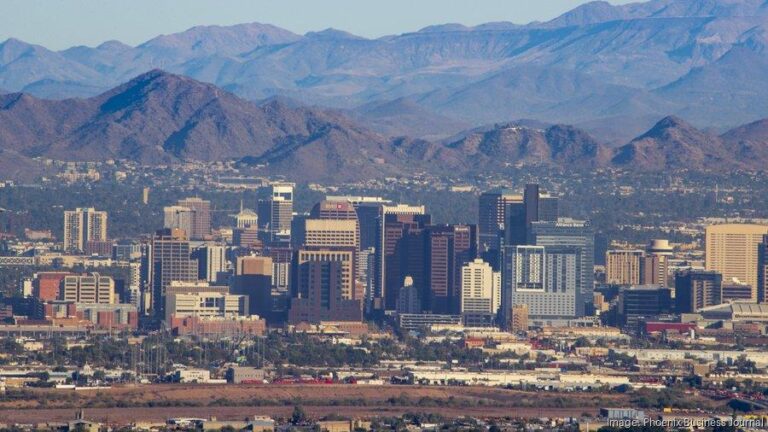Phoenix’s standing as a prime destination continues its downward slide in the latest U.S. News & World Report ranking of Best Places to Live, underscoring mounting challenges for the sprawling desert metropolis. Once celebrated for its booming economy and affordable living, the city has seen its appeal erode amid growing concerns over quality of life factors. This latest ranking by the national publication, closely watched by residents and investors alike, highlights key issues influencing the cityŌĆÖs nosedive and raises pressing questions about PhoenixŌĆÖs future competitiveness on the national stage.
Phoenix Faces Steep Decline in US News Best Places to Live Rankings
Recent data from US News & World Report highlights a significant drop for Phoenix, signaling concern among residents and city officials alike. The city, once considered a thriving hub for job opportunities and lifestyle amenities, has seen its position plummet due to multiple contributing factors including rising cost of living, traffic congestion, and climate challenges. Analysts point out that these issues have overshadowed PhoenixŌĆÖs robust economic growth, causing it to lose its competitive edge against other metropolitan areas.
Experts emphasize that the ranking shift is more than a number; it reflects broader trends impacting quality of life and long-term sustainability. Key concerns driving the decline include:
- Housing affordability pressures intensifying with rapidly increasing home prices
- Infrastructure strains exacerbated by rapid population growth and urban sprawl
- Environmental factors such as drought and extreme heat waves affecting livability
| Metric | Previous Rank | Current Rank | Trend |
|---|---|---|---|
| Job Market | 15 | 28 | Ō¼ć’ĖÅ |
| Housing Affordability | 45 | 72 | Ō¼ć’ĖÅ |
| Quality of Life | 22 | 40 | Ō¼ć’ĖÅ |
Key Factors Contributing to PhoenixŌĆÖs Drop in Desirability
Several critical issues have converged to push Phoenix down in the rankings, painting a challenging picture for the cityŌĆÖs future appeal. Among the most significant are rising crime rates, which have alarmed residents and policymakers alike. Despite previous efforts to enhance public safety, data from local law enforcement agencies indicate a surge in violent incidents and property crimes over the past year. This trend has heightened concerns about neighborhood security and community well-being, directly impacting the city’s attractiveness.
In addition to safety concerns, economic and environmental factors have played a crucial role. The persistent rise in housing costs has stretched the budgets of many, particularly younger families and first-time homebuyers. Meanwhile, prolonged and intensifying heatwaves ŌĆö characteristic of PhoenixŌĆÖs desert climate ŌĆö are compounding quality-of-life concerns, affecting everything from energy expenses to outdoor activities. Below is a summary table showcasing some key indicators that have influenced perceptions:
| Factor | Change (YoY) | Impact Level |
|---|---|---|
| Violent Crime Rate | +12% | High |
| Median Home Prices | +8.5% | Medium-High |
| Average Summer Temperature | +2.3┬░F | Medium |
| Unemployment Rate | -0.5% | Low |
Experts Analyze Economic and Social Impacts on Phoenix Residents
Economic challenges have significantly affected Phoenix residents, with experts pointing to rising housing costs and job market volatility as key contributors to the city’s declining livability score. Analysis reveals that wage growth has not kept pace with inflation, creating financial strain for many households. Additionally, the surge in rent and property prices has pushed affordability beyond reach for a growing number of families, forcing some to relocate or downsize.
Social implications are equally concerning, as community cohesion faces disruption due to these economic pressures. Experts emphasize:
- Increased commute times: Residents often travel longer distances for affordable housing or employment, impacting work-life balance.
- Dwindling access to public services: Budget cuts and demand spikes hinder availability of health, education, and social support programs.
- Heightened stress and mental health issues: Economic instability contributes to rising anxiety and reduced overall well-being.
| Factor | Impact Level | Noted Trend |
|---|---|---|
| Housing Affordability | High | Sharp decline over 3 years |
| Employment Opportunities | Moderate | Fluctuating with economic cycles |
| Public Service Access | Medium | Gradual reduction |
| Community Well-being | High | Increased concerns reported |
Strategic Recommendations for Phoenix to Reclaim Its Appeal
To reverse the downward trend in PhoenixŌĆÖs livability ranking, city officials must prioritize a multi-faceted approach focused on infrastructure renewal and community engagement. Expanding public transportation options and improving road maintenance will directly address daily commuter frustrations. Additionally, investing in inclusive community programs aimed at bolstering neighborhood safety and fostering local business growth can create a more vibrant and welcoming atmosphere for residents and newcomers alike.
Key strategies for recovery include:
- Affordable housing initiatives to combat rising living costs and reduce displacement
- Environmental sustainability projects to improve air quality and green spaces
- Enhanced educational resources to attract families and nurture workforce talent
- Partnerships with private sector to stimulate economic development and job creation
| Focus Area | Projected Impact | Timeline |
|---|---|---|
| Transportation Expansion | Reduced commute times | 1-3 years |
| Affordable Housing | Increased residency retention | 2-5 years |
| Green Infrastructure | Enhanced livability score | 3-6 years |
In Conclusion
As PhoenixŌĆÖs position continues to slip in the latest U.S. News rankings of Best Places to Live, city officials and stakeholders are increasingly focused on addressing the underlying challenges impacting quality of life. While the metro area remains a vibrant economic hub, the rankings underscore the need for targeted improvements in areas such as infrastructure, affordability, and public services. How Phoenix responds in the coming months will be critical in shaping its future appeal to residents and businesses alike.







